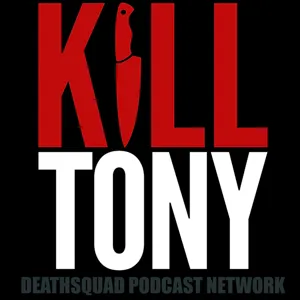Podcast Summary
Ticketmaster and Live Nation's Market Dominance in Concert and Live Event Ticketing: Ticketmaster and Live Nation control approximately 70% of the concert and live event ticketing market, demonstrating their significant market power
Ticketmaster and its parent company, Live Nation, control an estimated 70% of the concert and live event ticketing business. This dominance is a significant indicator of the market power these companies hold in the industry. During the Indicators of the Week episode, the hosts discussed various numbers from the news, including the surprising amount of electricity needed for artificial intelligence, the low salary of basketball star Caitlin Clark, and potential crackdowns on ticketing companies like Ticketmaster. While discussing the ticketing industry, it was revealed that Ticketmaster and Live Nation control a large portion of the market, leaving little room for competition. This dominance has been a long time coming, with Ticketmaster's history playing a significant role in its market position.
Allegations of Anti-Competitive Conduct by Ticketmaster from DOJ: The DOJ's potential lawsuit against Live Nation, Ticketmaster's parent company, could disrupt the ticketing industry's long-standing dominance and address concerns over high fees, bullying tactics, and inflated ticket prices.
Ticketmaster, through its parent company Live Nation Entertainment, has faced allegations of anti-competitive conduct from the US Department of Justice. This comes after years of criticism regarding high fees, bullying venues into using their service, and contributing to inflated ticket prices. The DOJ's potential lawsuit against Live Nation is part of a larger antitrust crackdown and could disrupt the ticketing industry's long-standing dominance by Live Nation. The WNBA is another topic we've discussed, but it's important to note that this news marks a significant development in the ongoing debates surrounding the ticketing industry's business practices.
WNBA's Lower Salaries for Players: Despite being the number 1 draft pick, Caitlin Clark signed a $338,056 contract for 4 seasons in the WNBA, significantly lower than the men's top draft pick's $55,000,000 deal, due to shorter season length and less revenue.
Despite Caitlin Clark being a basketball superstar and the number 1 draft pick, she signed a contract worth $338,056 for 4 seasons in the WNBA, which averages out to approximately $85,000 per year. This is significantly lower than the contract of last year's men's number one draft pick, who reportedly received $55,000,000 for 4 years. The lower salaries for WNBA players are due to several factors, including the shorter season length and less revenue generated. This disparity in earnings has been a long-standing issue in professional sports. However, it's important to note that while Caitlin's salary may be lower than expected, she will still find ways to make additional income.
Caitlyn Jenner's Career Surge and AI's Power Demand: Caitlyn Jenner's career gains momentum with major deals, potentially impacting the WNBA. In AI, energy demands pose a significant challenge, leading companies to consider nuclear power solutions.
Both Caitlyn Jenner and the field of artificial intelligence (AI) are poised for significant growth. Jenner's career is experiencing a surge with major contracts from companies like State Farm, Gatorade, and rumors of an 8-figure deal with Nike. This could mark a turning point for the WNBA with increased visibility and opportunities. In the realm of AI, the demand for power is becoming a major bottleneck due to the insatiable energy requirements of large language models. Companies like Microsoft are even exploring nuclear development to meet this growing need for power, indicating the importance of addressing energy consumption to facilitate advancements in AI.
Data centers growing from 'pigs' to 'elephants' in energy consumption: Data centers, once significant energy consumers, have grown exponentially and are now putting additional strain on the US power grid
Data centers, which have always consumed large amounts of electricity, are now growing at an unprecedented rate and are putting additional strain on the already aging and struggling US power grid. This was highlighted in a recent Reuters interview where data centers were described as having grown from being "pigs" to "elephants" in terms of energy consumption. The metaphor signifies their significant increase in size and demand for power. It's important to note that this growth is causing concern as the power grid struggles to meet current demand. This episode was produced by Angel Carreras, engineered by Valentino Rodriguez Sanchez, and checked by Sarah Juarez. For a break from the news, visit NPR's culture section at npr.org. And if you're looking for affordable wireless plans, check out Mint Mobile starting at just $15 a month, or for easy omnichannel inventory management and fulfillment, consider ShipBob.





